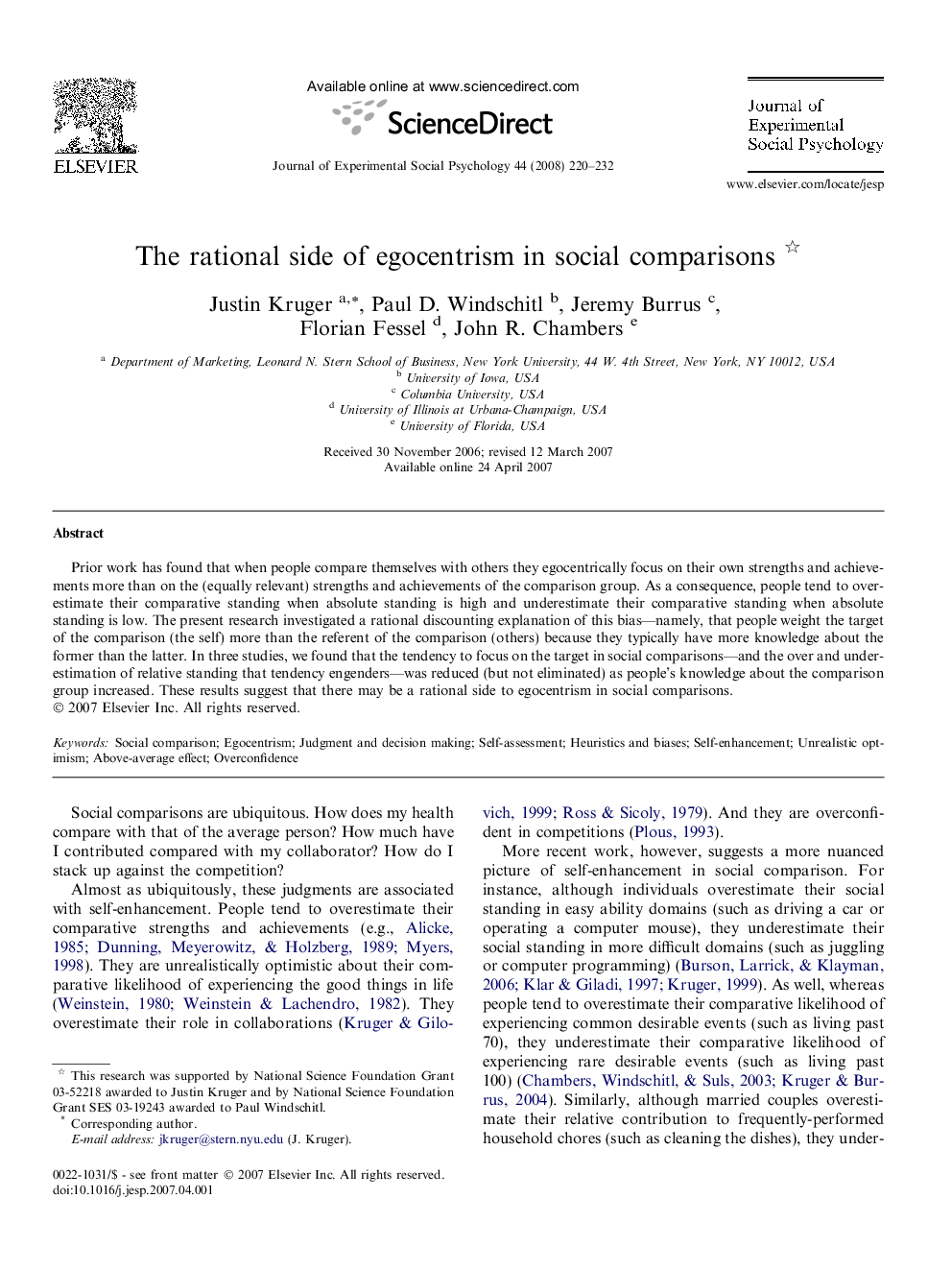| Article ID | Journal | Published Year | Pages | File Type |
|---|---|---|---|---|
| 948534 | Journal of Experimental Social Psychology | 2008 | 13 Pages |
Prior work has found that when people compare themselves with others they egocentrically focus on their own strengths and achievements more than on the (equally relevant) strengths and achievements of the comparison group. As a consequence, people tend to overestimate their comparative standing when absolute standing is high and underestimate their comparative standing when absolute standing is low. The present research investigated a rational discounting explanation of this bias—namely, that people weight the target of the comparison (the self) more than the referent of the comparison (others) because they typically have more knowledge about the former than the latter. In three studies, we found that the tendency to focus on the target in social comparisons—and the over and underestimation of relative standing that tendency engenders—was reduced (but not eliminated) as people’s knowledge about the comparison group increased. These results suggest that there may be a rational side to egocentrism in social comparisons.
